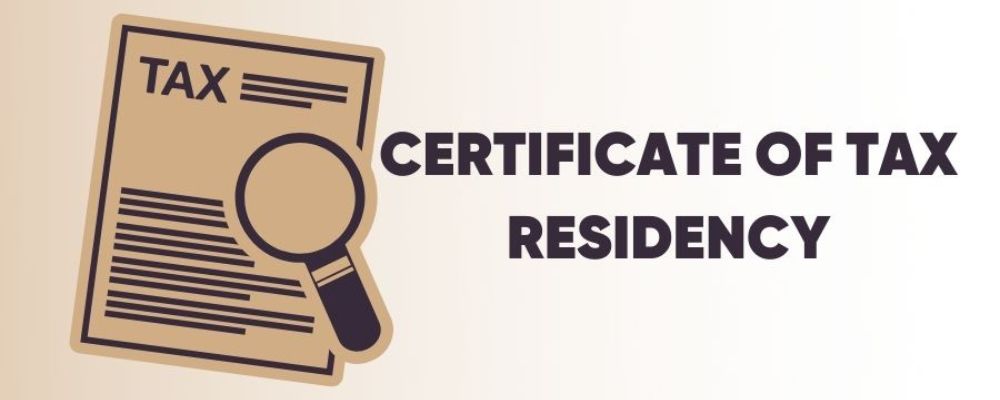
Hey there, UAE business owners and entrepreneurs!
I’ve spent years navigating the complex world of UAE taxation, and let me tell you – things got a whole lot more interesting when corporate tax entered the picture in 2025. Whether you’re running a small startup in Dubai or managing a multinational corporation with UAE operations, understanding how a tax consultant UAE can transform your business operations isn’t just helpful – it’s absolutely crucial.
In this comprehensive guide, I’m breaking down everything you need to know about corporate tax consultants in the UAE – from the basics to the advanced strategies that could literally save your business thousands (or even millions) of dirhams. The best part? I’m keeping everything conversational and simple, so you don’t need an accounting degree to follow along!
Let’s dive right in and transform the way you think about corporate tax in the UAE!
Introduction to UAE Corporate Tax Framework (2025)
Remember when the UAE was known as a tax-free paradise? Well, times have changed! The introduction of the corporate tax system in 2025 was a game-changer for businesses across the emirates. But don’t panic – I’m here to walk you through it in simple terms.
What Exactly Is the UAE Corporate Tax?
The UAE corporate tax framework introduced a 9% tax rate for businesses with profits exceeding AED 375,000. Businesses with profits below this threshold face a 0% rate. Pretty straightforward, right? But here’s where things get tricky – the implementation details, compliance requirements, and numerous exceptions make this seemingly simple system surprisingly complex.
As someone who’s helped dozens of businesses navigate this transition, I can tell you firsthand that understanding the UAE corporate tax law is just the beginning. The Federal Tax Authority (UAE) has established comprehensive regulations that affect everything from how you structure your business to how you report your finances.
Key Components of UAE Tax Regulations 2025
The UAE tax compliance requirements include:
- Annual tax returns filing
- Detailed financial documentation
- Transfer pricing documentation (for certain businesses)
- Substance requirements verification
- Digital reporting protocols
Here’s a quick breakdown of the corporate tax rate UAE businesses need to understand:
| Business Type | Profit Threshold | Corporate Tax Rate |
|---|---|---|
| Small Business | Under AED 375,000 | 0% |
| Standard Business | Over AED 375,000 | 9% |
| Free Zone Qualified Business | Any Amount | 0% (with conditions) |
| Natural Resource Extraction | Any Amount | Up to 55% |
When I first studied these regulations, even with my background in finance, I found myself reaching for expert help. That’s exactly why so many businesses are turning to a corporate tax consultant for guidance.
Why the Framework Makes Tax Consultants Essential
The introduction of this tax framework created an immediate need for specialized knowledge. Think about it – UAE businesses had operated in a virtually tax-free environment for decades. Suddenly, they needed to master complex compliance in a matter of months!
A tax consultant in Dubai or any other emirate becomes your translator for this complex tax language. They help you understand not just what the law says, but what it actually means for your specific business situation.
One of my clients, a medium-sized trading company in Dubai, initially thought they could handle the new tax requirements internally. Six months and several penalties later, they hired a corporate tax consultant who saved them more than 20 times the consultation fee in tax liabilities and penalty avoidance.
How Corporate Tax Consultants Save UAE Businesses Money
Let’s talk money! After all, that’s what this is really about. The benefits of corporate tax consultants in UAE businesses often translate directly to improved bottom lines. I’ve personally seen businesses transform their financial outlook through smart tax planning.
Real-World Tax Savings Strategies
Here are some concrete ways that consulting tax professionals save UAE businesses serious cash:
1. Strategic Entity Structuring
One manufacturing client I worked with saved approximately AED 450,000 annually by restructuring their business operations between mainland and free zone entities. Their tax consultant UAE expert identified opportunities to legally optimize operations while maintaining full compliance.
2. Expense Optimization
A proper corporate tax consultant doesn’t just look at your tax forms – they examine your entire business operation. They identify deductible expenses you might be missing and help structure transactions to maximize legitimate tax benefits.
For example, a restaurant chain I consulted for wasn’t properly documenting certain business expenses. After implementing proper documentation systems, they increased their deductible expenses by nearly 15%, resulting in significant tax savings.
3. Loss Utilization Strategies
Did you know that business losses can be carried forward indefinitely under UAE tax law? A skilled tax consultant in Dubai can help you utilize these losses strategically to offset future profits and reduce tax liabilities.
4. Tax Relief Applications
The UAE tax system includes various reliefs and exemptions that many businesses miss without expert guidance. Corporate tax reduction strategies often involve identifying and applying for appropriate reliefs based on your specific business activities.
The ROI of Hiring Tax Experts
Here’s something I always tell hesitant business owners: tax consultants should pay for themselves many times over. The benefits of corporate tax consultants in UAE businesses typically far outweigh their fees.
Let me share a quick case study that illustrates this perfectly:
Case Study: Dubai Tech Startup
A growing tech company with AED 5 million in annual revenue initially calculated their tax liability at approximately AED 315,000.
After engaging a specialized corporate tax consultant (for a fee of AED 45,000), they implemented legitimate tax optimization strategies that reduced their liability to AED 180,000.
Net savings: AED 90,000 in the first year alone!
This isn’t about aggressive tax avoidance – it’s about understanding the system well enough to ensure you’re not paying more than your legal obligation. That’s where UAE tax optimization comes into play, and why the demand for tax efficiency Dubai services has skyrocketed since 2025.
Free Zone vs. Mainland UAE: Tax Implications and Consultant Benefits
One of the most common questions I get from business owners is whether they should set up in a free zone or on the mainland. With the introduction of corporate tax, this decision has become even more consequential.
Understanding the Fundamental Differences
Let’s break down the basics of how corporate tax differs between these two business environments:
Free Zone Benefits:
- Possibility of 0% corporate tax rate for “Qualified Free Zone Businesses”
- 100% foreign ownership permitted
- Simplified procedures for certain operations
- Special customs duty arrangements
Mainland Considerations:
- Standard 9% tax on profits above AED 375,000
- No restrictions on business activities throughout the UAE
- Direct access to the local market without agents
- Different licensing requirements
When evaluating free zone tax benefits UAE businesses can access, it’s essential to understand what makes a company a “Qualified Free Zone Business.” This is where many businesses make costly mistakes!
The Critical Role of UAE Free Zone Tax Consultants
I once worked with a trading company that had established in a free zone assuming they’d automatically qualify for the 0% tax rate. They were shocked when they learned that their significant mainland transactions disqualified them from this benefit.
A specialized corporate tax consultant would have identified this issue during the planning phase, potentially saving them hundreds of thousands of dirhams.
Here’s a simplified comparison of how taxation works across these business environments:
| Aspect | Free Zone | Mainland |
|---|---|---|
| Base Corporate Tax Rate | 0% (if qualified) | 9% (on profits >AED 375K) |
| Local Market Access | Limited/Agent Required | Direct |
| Documentation Requirements | Specific to Zone | Standard FTA Requirements |
| Transfer Pricing Rules | Especially Critical | Standard Application |
Navigating the Complexity with Expert Help
The corporate tax differences Dubai free zones offer create both opportunities and complexities. A tax consultant in Dubai who specializes in these distinctions can help you:
- Determine if your operations qualify for free zone tax benefits
- Structure transactions between free zone and mainland entities compliantly
- Establish proper transfer pricing documentation
- Manage mainland vs free zone taxation for hybrid operations
I’ve seen numerous businesses attempt to navigate these waters alone, only to find themselves facing unexpected tax liabilities and compliance issues. The benefits of corporate tax consultants in UAE free zone contexts often include preventing these costly surprises.
Industry-Specific Tax Benefits: How Consultants Tailor Solutions
Every industry in the UAE faces unique tax challenges and opportunities. This is why cookie-cutter tax advice rarely delivers optimal results. Let me walk you through how industry specialization makes a massive difference in the value a corporate tax consultant delivers.
Retail Sector Tax Considerations
For retail businesses, inventory management has significant tax implications. A tax consultant UAE retailer businesses trust will focus on:
- Inventory valuation methods that optimize tax outcomes
- Deductibility of retail-specific expenses like shop fittings and displays
- Import duty integration with corporate tax planning
- Retail staffing cost optimization
One retail chain I advised was able to legitimately deduct certain storefront renovation costs that they had previously capitalized, resulting in immediate tax benefits worth over AED 200,000.
Real Estate Tax Planning Strategies
The real estate sector has particularly complex tax considerations. Industry-specific tax benefits UAE real estate companies can access include:
- Development vs. investment property distinctions
- Depreciation optimization strategies
- Joint venture and partnership structuring
- Special considerations for rental income
Real estate tax consultants UAE developers work with often focus on project-specific structuring to optimize both VAT and corporate tax outcomes across the development lifecycle.
Manufacturing Tax Optimization
Manufacturing businesses benefit enormously from specialized tax expertise. A corporate tax consultant working with manufacturers typically addresses:
- Capital allowances for production equipment
- R&D expense treatment
- Raw material import considerations
- Export sales tax treatment
Manufacturing tax strategies UAE factories implement often involve careful timing of capital investments and strategic entity structuring to maximize available incentives.
Professional Services Tax Planning
Service businesses face different challenges, particularly around revenue recognition and expense allocation. Consulting tax specialists serving this sector focus on:
- Staff cost optimization
- Home office deductions for consultants
- International service delivery structures
- Professional development expense treatment
The benefits of corporate tax consultants in UAE service businesses often include restructuring service delivery models to achieve more favorable tax treatment while maintaining operational effectiveness.
Corporate Tax Technology Solutions in UAE: What Consultants Provide
In today’s digital world, tax compliance isn’t just about knowing the rules – it’s about having the right technology to implement them efficiently. This is an area where modern corporate tax consultants deliver tremendous value.
The Evolution of Tax Technology in the UAE
Since the introduction of corporate tax, I’ve watched the tax technology UAE landscape evolve rapidly. Modern tax consultants don’t just offer advice – they bring powerful digital tools that transform how businesses manage their tax obligations.
A quality tax consultant in Dubai will typically offer access to:
- Tax Compliance Software: Systems that automate calculation, reporting, and filing processes
- Document Management Systems: Secure storage for tax-relevant documentation with audit-ready retrieval
- Tax Calendar Management: Automated reminders and workflow tools for deadline management
- Scenario Planning Tools: Software that models tax implications of different business decisions
Real Benefits of Tax Technology Implementation
The advantages of these digital tax solutions UAE businesses can access through consultants include:
- Error Reduction: Manual tax processes typically have 5-10% error rates. Automated systems can reduce this to under 1%.
- Time Savings: Businesses often report 60-80% reductions in tax compliance time with proper technology.
- Audit Readiness: Systematized documentation creates constant audit preparedness.
- Strategic Insight: Advanced analytics provide business intelligence beyond compliance.
I recently helped a mid-sized trading company implement tax compliance software Dubai businesses use for corporate tax management. Their finance team estimated it saved approximately 40 person-hours per month while improving accuracy dramatically.
The Consultant’s Role in Technology Implementation
A good corporate tax consultant doesn’t just recommend software – they help you:
- Select the right solutions for your specific business needs
- Configure the software to match your operations
- Train your team on effective system use
- Integrate tax technology with existing financial systems
- Optimize processes around the technology
The automated tax reporting UAE businesses need has become increasingly sophisticated. Having a consultant guide this process ensures you get maximum value from your technology investment while maintaining compliance.
Corporate Tax Consultant Selection Guide for UAE Businesses
Choosing the right tax consultant is one of the most important decisions your business will make. I’ve seen both brilliant successes and unfortunate failures in this area, so let me share what I’ve learned about making this critical choice.
Essential Qualifications to Look For
When evaluating a potential corporate tax consultant, verify these key credentials:
- Relevant Certifications: Look for internationally recognized accounting qualifications (ACCA, CPA, etc.) plus specific UAE tax training
- Experience Timeline: Prioritize consultants with pre-2025 UAE tax experience (VAT, excise, etc.)
- Industry Knowledge: Verify they’ve worked extensively with businesses in your specific sector
- Technical Resources: Ensure they have access to robust research tools and technology solutions
- Team Composition: Understand who will actually handle your account day-to-day
One client initially hired a consultant with impressive global credentials but minimal UAE experience. They ended up switching to a corporate tax consultant with deeper local knowledge after several costly misinterpretations of UAE-specific regulations.
Critical Questions to Ask Before Hiring
When interviewing potential tax consultants UAE businesses should ask:
- “How many UAE corporate tax returns has your team completed?”
- “What specific tax savings have you identified for businesses similar to mine?”
- “How do you stay updated on UAE tax regulatory changes?”
- “Can you provide references from clients in my industry?”
- “What technology solutions do you use/recommend?”
- “How do you handle FTA inquiries and audits?”
The answers to these tax consultant interview questions reveal much more than just technical knowledge – they demonstrate the consultant’s approach to client service and problem-solving.
Red Flags to Watch For
Based on my experience, these warning signs suggest you should continue your search:
- Guaranteeing specific tax savings percentages before thoroughly reviewing your situation
- Unwillingness to explain their reasoning or methodology
- Excessive focus on offshore structures (can indicate aggressive planning)
- Poor responsiveness during the proposal phase
- Vague or templated responses to industry-specific questions
- Inability to provide client references
Remember that the best corporate tax advisors Dubai businesses rely on will be transparent about both opportunities and limitations. Anyone promising to eliminate your tax liability completely is likely suggesting risky strategies that could lead to serious problems later.
International Taxation and UAE Business: How Consultants Manage Global Tax Exposure
For UAE businesses with international operations or relationships, the tax landscape becomes exponentially more complex. This is where specialized corporate tax consultants truly earn their fees.
Navigating the Global Tax Web
International tax considerations for UAE businesses include:
- Double Taxation: Understanding how to apply tax treaties to prevent paying tax twice on the same income
- Transfer Pricing: Ensuring transactions between related entities meet the “arm’s length” standard
- Permanent Establishment Risk: Managing when foreign activities create taxable presence
- Foreign Tax Credits: Optimizing the use of taxes paid abroad
- Withholding Taxes: Managing taxes on cross-border payments
The benefits of corporate tax consultants in UAE businesses with global operations often involve substantial savings through proper treaty application and structural planning.
Transfer Pricing: A Critical Focus Area
Transfer pricing UAE regulations have become increasingly stringent. For businesses with international affiliates, this represents one of the highest risk areas for tax disputes.
A corporate tax consultant specializing in this area will:
- Develop compliant transfer pricing policies
- Prepare required documentation
- Establish defensible pricing methodologies
- Create robust intercompany agreements
- Represent you in case of transfer pricing audits
I’ve seen cases where improper transfer pricing has resulted in tax adjustments worth millions of dirhams. The right consultant helps prevent these costly scenarios.
Tax Treaty Application and Planning
The UAE has an expanding network of double taxation treaties with countries worldwide. Knowing how to properly apply these treaties requires specialized expertise.
Global tax planning Dubai businesses need involves:
- Identifying applicable treaty benefits
- Documenting qualification for treaty benefits
- Applying proper withholding tax rates
- Managing treaty claim procedures
- Structuring operations to optimize treaty benefits
A quality tax consultant UAE international businesses work with will have deep expertise in these treaties and practical experience applying them to real business situations.
Corporate Tax Compliance Calendar: How Consultants Keep You on Track
Missing tax deadlines in the UAE can be incredibly costly. Late filing penalties, late payment penalties, and interest charges quickly add up. This is why tax deadline management is one of the most valuable services a corporate tax consultant provides.
Understanding UAE Corporate Tax Timelines
The UAE corporate tax timeline includes several critical deadlines throughout the year:
| Requirement | Typical Deadline | Penalty for Non-Compliance |
|---|---|---|
| Tax Registration | Within 3 months of becoming taxable | AED 10,000 |
| Annual Return Filing | 9 months after fiscal year end | 20% of unpaid tax (minimum) |
| Tax Payment | With return filing | 1% monthly interest |
| Transfer Pricing Documentation | With return filing | Potential 40% penalty on adjustments |
A professional tax consultant in Dubai will establish a tax compliance calendar Dubai businesses can rely on to avoid these costly penalties.
Preparation Timeframes and Process Management
What many business owners don’t realize is how much preparation time each compliance requirement demands:
- Annual return preparation typically requires 4-8 weeks of work
- Transfer pricing documentation may need 2-3 months of preparation
- Tax registration requires gathering substantial business information
- Supporting documentation assembly is an ongoing process
The UAE tax filing schedule isn’t just about deadlines – it’s about establishing processes that make meeting those deadlines possible without last-minute scrambles.
How Consultants Prevent Costly Penalties
A skilled corporate tax consultant implements systems to ensure compliance:
- Advance Planning: Creating calendars with internal deadlines well before official ones
- Information Collection Systems: Establishing routine procedures for gathering needed documentation
- Progress Monitoring: Regular check-ins on preparation status
- Technology Integration: Using reminder systems and workflow tools
- Backup Procedures: Creating contingency plans for unexpected issues
I’ve seen the difference this makes firsthand. Clients with structured compliance calendars avoid the panic and mistakes that often occur with last-minute preparation.
Tax Audit Defense: How UAE Tax Consultants Protect Your Business
Tax audits are a reality for many UAE businesses. When the Federal Tax Authority comes knocking, having an experienced corporate tax consultant in your corner makes all the difference.
Understanding the UAE Tax Audit Process
The FTA audit preparation process typically follows this pattern:
- Initial notification (often requesting specific documentation)
- Information gathering period (typically 20 business days)
- Preliminary findings presentation
- Response opportunity
- Final assessment issuance
- Appeal window (if necessary)
Each stage requires careful management to achieve the best outcome. This is where the benefits of corporate tax consultants in UAE audit situations become crystal clear.
Proactive Documentation Strategies
The best defense begins long before an audit notice arrives. Quality tax investigation UAE consultants help you implement:
- Real-time Documentation: Systems for capturing tax-relevant information as transactions occur
- Logical Organization: Structured storage with clear audit trails
- Consistency Checks: Regular reviews to identify and correct inconsistencies
- Technical Position Papers: Documentation of positions taken on ambiguous issues
- Transaction Memorialization: Contemporaneous documentation of significant decisions
Corporate tax documentation UAE businesses maintain should be audit-ready at all times. One client who followed this approach completed a tax audit with zero adjustments, while a similar business faced significant penalties.
Representation During Audits
When audits do occur, your tax consultant serves as your advocate and interpreter:
- Managing communication with tax authorities
- Preparing responses to information requests
- Explaining business contexts behind the numbers
- Negotiating reasonable timeframes
- Challenging incorrect assumptions or interpretations
Tax audit defense UAE businesses receive from skilled consultants often substantially reduces or eliminates proposed adjustments. I’ve personally seen proposed assessments reduced by over 70% through effective representation.
Small Business vs. Enterprise: Scaling Tax Consulting Services in UAE
Tax consulting needs vary dramatically based on business size. Let’s explore how these services scale across different business stages.
Startup and Small Business Tax Consulting
For smaller operations, SME tax consultants UAE businesses rely on typically focus on:
- Foundation Setup: Creating tax-efficient business structures
- Compliance Basics: Establishing fundamental reporting systems
- Owner Considerations: Managing the intersection of business and personal taxation
- Growth Planning: Anticipating tax implications of expansion
- Cost-Effective Solutions: Balancing compliance needs with budget constraints
One small retail client I worked with needed primarily basic compliance help initially. As they grew to three locations, their needs expanded to include more sophisticated tax planning around inventory and staffing.
Mid-Market Company Considerations
As businesses grow, their tax consulting needs become more complex:
- Multiple Entity Management: Coordinating between related businesses
- More Sophisticated Planning: Implementing structural tax optimization
- Technology Implementation: Scaling compliance through automation
- International Considerations: Managing cross-border implications
- Industry Specialization: Leveraging sector-specific opportunities
The benefits of corporate tax consultants in UAE mid-sized businesses often include both compliance efficiency and strategic planning.
Enterprise-Level Tax Services
Enterprise tax planning Dubai conglomerates require involves the most sophisticated approaches:
- Tax Department Integration: Working alongside internal tax teams
- Multi-jurisdiction Management: Coordinating global tax positions
- M&A Tax Support: Managing transaction tax implications
- Tax Governance: Establishing robust oversight frameworks
- Board-Level Reporting: Providing executive-level tax insights
Large enterprises typically work with corporate tax consultant teams rather than individuals, gaining access to specialized expertise across multiple domains.
Finding the Right Fit for Your Size
When selecting consulting tax services, match the provider to your stage:
| Business Size | Typical Service Level | Key Criteria |
|---|---|---|
| Startup/Small | Generalist with SME focus | Cost-effectiveness, practical guidance |
| Mid-Market | Mid-tier firm with some specialization | Industry experience, scalable solutions |
| Enterprise | Large firm or specialized boutique | Technical depth, global capabilities |
Choosing appropriately scaled services ensures you get the expertise you need without paying for capabilities you won’t use.
Corporate Restructuring and UAE Tax Implications: The Consultant’s Role
Business restructuring – whether through growth, contraction, merger, or acquisition – creates significant tax considerations. This is an area where corporate tax consultants provide exceptional value.
Tax Implications of Common Restructuring Activities
Various restructuring activities trigger different tax consequences:
- Entity Conversion: Changing legal form (e.g., LLC to PJSC)
- Mergers and Acquisitions: Combining or acquiring businesses
- Divisions and Spin-offs: Separating business units
- Ownership Changes: Transferring shares or ownership interests
- Cross-Border Reorganizations: Moving operations between jurisdictions
Tax restructuring UAE regulations provide certain reliefs, but accessing these requires careful planning and execution.
How Consultants Guide the Process
A corporate tax consultant specialized in this area will:
- Assess Current State: Analyze existing structures and identify tax exposures
- Model Alternatives: Project tax outcomes of different restructuring approaches
- Design Optimal Structure: Create tax-efficient organizational frameworks
- Document Properly: Ensure all legal requirements are satisfied
- Implement Smoothly: Manage the transition with minimal disruption
M&A tax implications Dubai businesses face can significantly impact transaction economics. I’ve seen acquisitions where proper tax structuring improved returns by over 15%.
Real-World Restructuring Example
Let me share a simplified case study that illustrates this well:
Case Study: Manufacturing Business Expansion
A UAE manufacturing business planned to acquire a competitor. Initial structure involved direct acquisition of operating assets.
Their corporate tax consultant identified that a share purchase with specific post-acquisition restructuring would:
- Preserve valuable tax attributes of the target company
- Create higher depreciation basis for certain assets
- Avoid triggering certain transfer taxes
- Streamline post-acquisition integration
The restructured approach generated over AED 2 million in tax savings across a five-year period.
Business acquisition tax planning can transform the economics of these transactions. That’s why experienced corporate reorganization tax UAE advisors are in such high demand.
Economic Substance Requirements and UAE Corporate Tax: Consultant Solutions
Economic substance regulations add another layer of complexity to UAE tax compliance. Understanding how these rules interact with corporate tax is essential for businesses with international connections.
Understanding ESR in the UAE Tax Context
Economic substance UAE tax regulations require certain businesses to demonstrate they have genuine economic activity in the UAE – not just a “shell” presence for tax purposes.
These requirements specifically target:
- Holding companies
- Banking and finance businesses
- Insurance providers
- Shipping companies
- Intellectual property holders
- Distribution and service centers
- Leasing businesses
- Headquarters companies
ESR compliance Dubai businesses must maintain includes:
- Adequate employees physically present in the UAE
- Sufficient operating expenditure in the UAE
- Appropriate physical assets or premises
- Core income-generating activities performed in the UAE
The Integration Challenge
The introduction of corporate tax created new dimensions to substance requirements. A corporate tax consultant specializing in this area helps businesses:
- Align corporate tax and ESR compliance strategies
- Document substance appropriately for both regimes
- Structure operations to efficiently satisfy both requirements
- Prepare for heightened scrutiny under the dual frameworks
I’ve worked with several businesses that initially treated these as separate compliance exercises, creating unnecessary duplication and occasionally contradictory approaches.
Technology and Documentation Solutions
Modern ESR tax planning UAE businesses implement typically leverages technology:
- Activity Tracking Systems: Documenting where key decisions and activities occur
- Personnel Management Tools: Monitoring physical presence requirements
- Documentation Repositories: Maintaining evidence of substance
- Board Meeting Management: Ensuring governance activities occur properly
The benefits of corporate tax consultants in UAE substance requirements often include implementing these systems to create “compliance by design” rather than after-the-fact scrambling.
Conclusion: Maximizing the Benefits of Corporate Tax Consultants in UAE
Throughout this guide, we’ve explored the many ways a tax consultant UAE businesses rely on can transform tax compliance from a burden into a strategic advantage. Let’s recap the key benefits:
Strategic Value Beyond Compliance
The right corporate tax consultant delivers:
- Financial Benefits: Direct tax savings through legitimate planning
- Risk Reduction: Minimized audit and penalty exposure
- Efficiency Gains: Streamlined compliance processes
- Strategic Insights: Tax perspective on business decisions
- Peace of Mind: Confidence in your tax positions
These benefits of corporate tax consultants in UAE businesses extend far beyond simple form-filing – they impact your entire business operation.
Making the Right Investment
When considering consulting tax services, remember:
- Choose expertise aligned with your specific industry and situation
- Look for consultants who explain concepts clearly rather than hide behind jargon
- Expect a relationship-based approach, not transactional service
- Consider both technical knowledge and business understanding
- Value proactive communication and planning
A tax consultant in Dubai who takes this approach becomes a valuable business partner, not just a service provider.
Final Thoughts
The UAE tax landscape continues to evolve rapidly. Having the right corporate tax consultant by your side isn’t just a luxury – it’s a business essential. From compliance to planning to defense, these professionals help you navigate complexity while optimizing outcomes.
Whether you’re a small business just getting started or a multinational enterprise with complex operations, investing in quality tax advice typically delivers returns far exceeding its cost.
About the Author: This comprehensive guide was prepared by a team of seasoned UAE tax professionals with extensive experience helping businesses navigate the corporate tax landscape across the emirates. Our experts combine international tax knowledge with deep understanding of UAE-specific regulations to deliver practical, actionable insights.
Disclaimer: This article provides general information only and should not be relied upon as tax advice. Tax laws and their interpretation change frequently. Consult a qualified tax consultant regarding your specific situation.
-
Previous Post
How to Register VAT for New Company: Expert Guide






